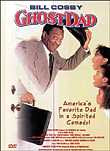
Directed by Neal Brennan. I have read and heard through Hollywood gossip that Jeremy Piven (who stars in this movie) is an asshole, though the stories people tell to illustrate the point don't sound all that different from any other story you've ever heard of a Hollywood asshole. Which doesn't get him off the hook, it just means that he is probably not a unique form of asshole, just a bigger one than normal.
That's the way this movie is. It's not very good. It's one of those mean-spirited comedies where the characters are all cut from some weird one-dimensional cloth bought from that textile mill the Farrelly Brothers founded 15 or so years ago. If you fill a movie with enough of them, nobody has to have an actual conversation. Each character just needs to lean in every now and then and do something crazy that fulfills their wacky quirk: racist, creepy gay, child molester, sassy black, nutty Asian, evil boyfriend -- you get the idea.
Pretty much all of this flick takes place on a car lot, where I have been spending some time. I crashed my car on Route 128 just outside of Lexington, Mass. a couple of weeks ago, hydroplaning on some slush in the left lane, and sliding across four lanes of rush hour traffic and caroming off guard rails on both sides like a pinball, and forcing some poor soul in a minivan to T-bone the passenger side of my Mazda. Fortunately there wasn't even a ding. Just kidding, it was totaled. So I'm negotiating to buy a Prius, which goes sort of like this:
ME: "Here's a stupid low amount I don't expect to pay for your ugly ass car."
THEM: "Here's a broomstick I plan to shove up your ass, as well as a higher figure I know you won't pay for this death trap that you are a fool for buying."
ME: "How's about we split the difference?"
THEM: "O.K. Want a cup of coffee?"
ME: "I take it black."
And that's how it works. This movie may or may not have been inspired by the 2004 John Landis-directed documentary "Slasher," which I highly recommend. "Slasher" studies Michael Bennett, a sandpaper-voiced sales expert called in by used car lots to help clear out old inventory. As you might expect, a guy like Bennett has a complicated past and some personality issues and "Slasher" exhibits this with a detached fascination.
In "The Goods," Jeremy Piven attempts to portray the same sort of character, make you like him, and resolve the conflict. The problem is that handling this kind of mean-spirited comedy is almost like heart surgery and in the wrong hands it has no warmth, you don't like anybody and it just doesn't work.
Actually, this isn't 100% true. Will Ferrell has a surprise cameo and his boundless charisma pushes through the flick's limitations, easily making his two scenes the most likable, especially the laugh-out-loud first one. Try to find it on YouTube, otherwise don't bother.



















